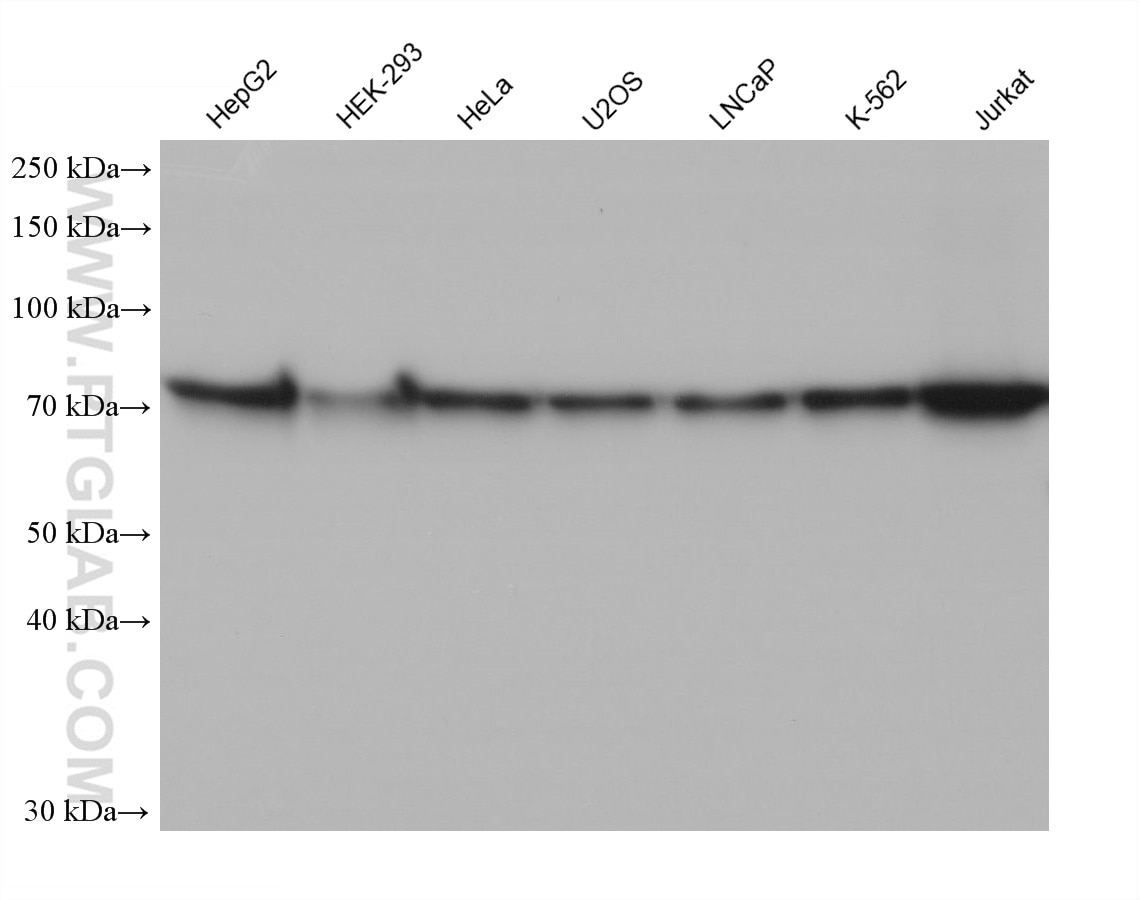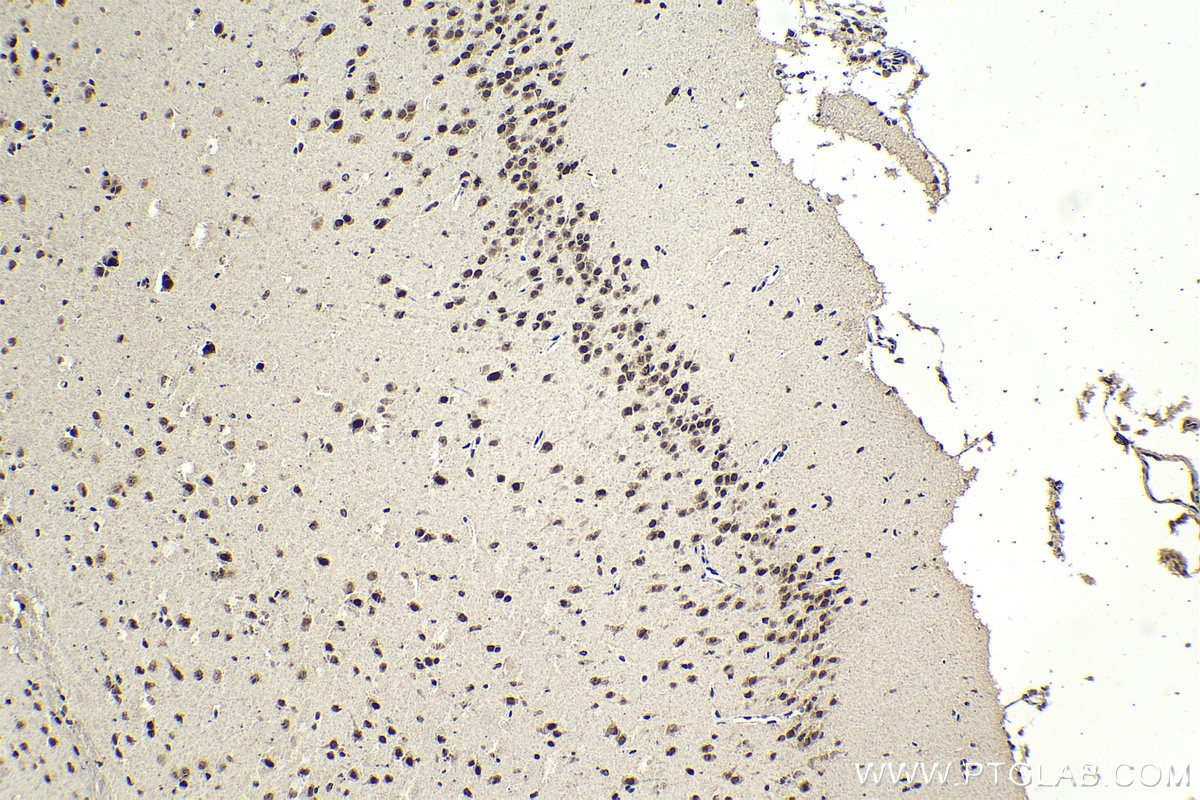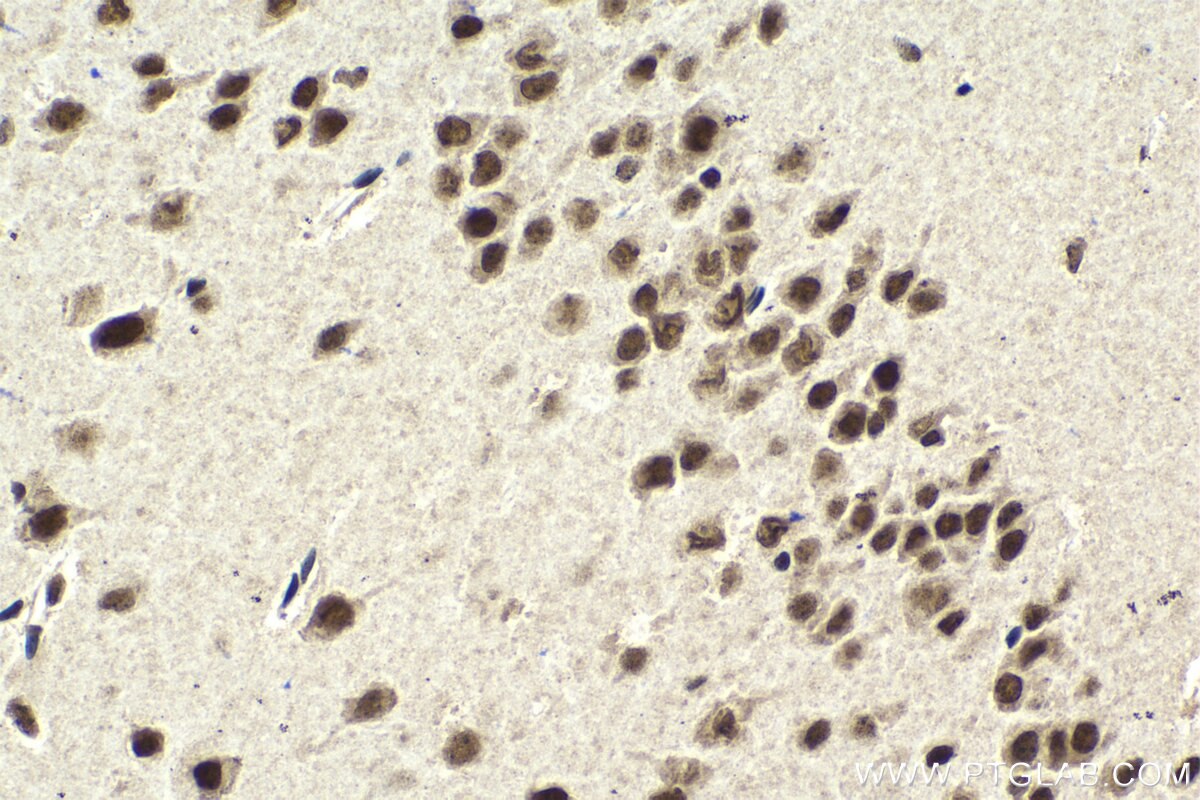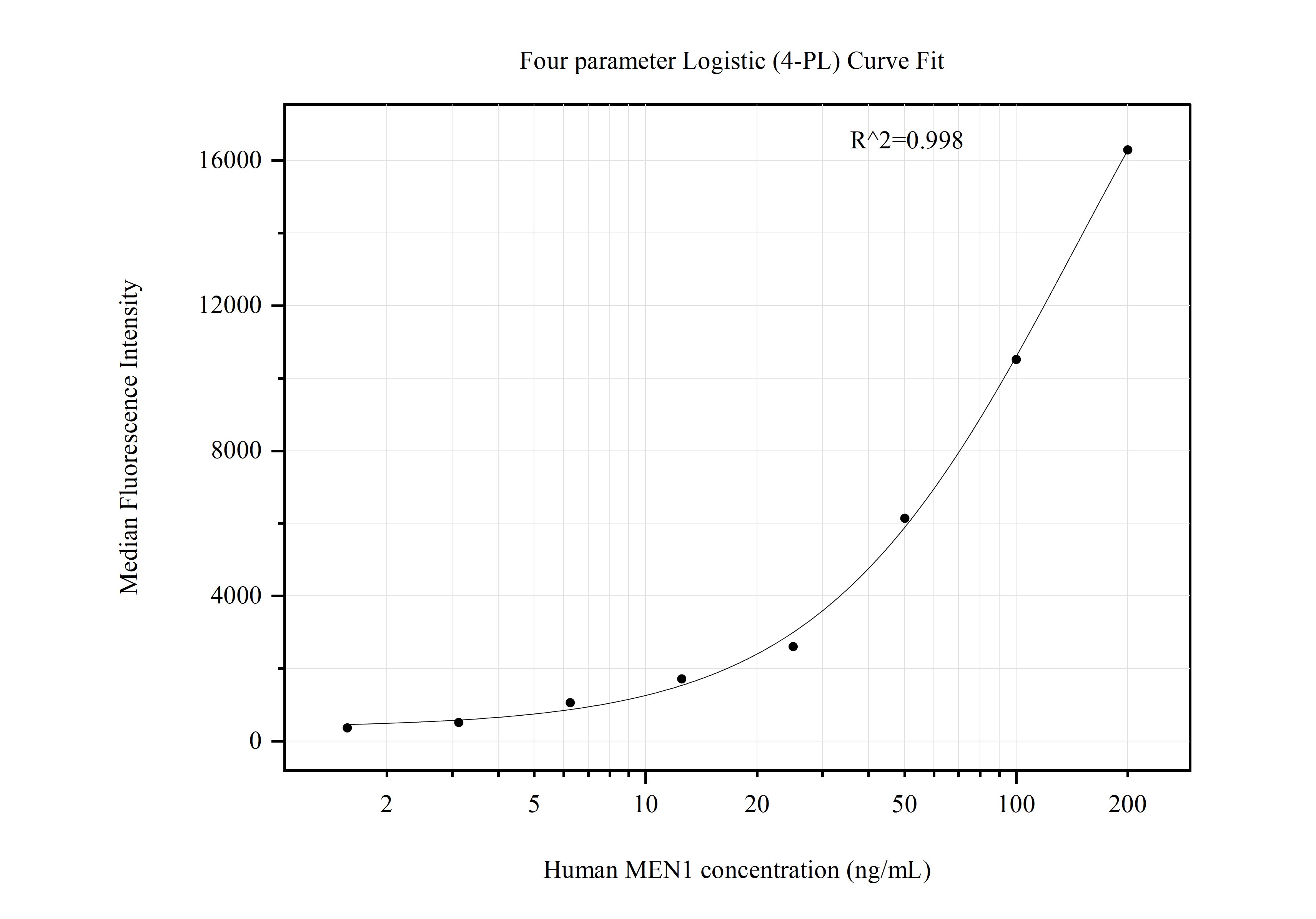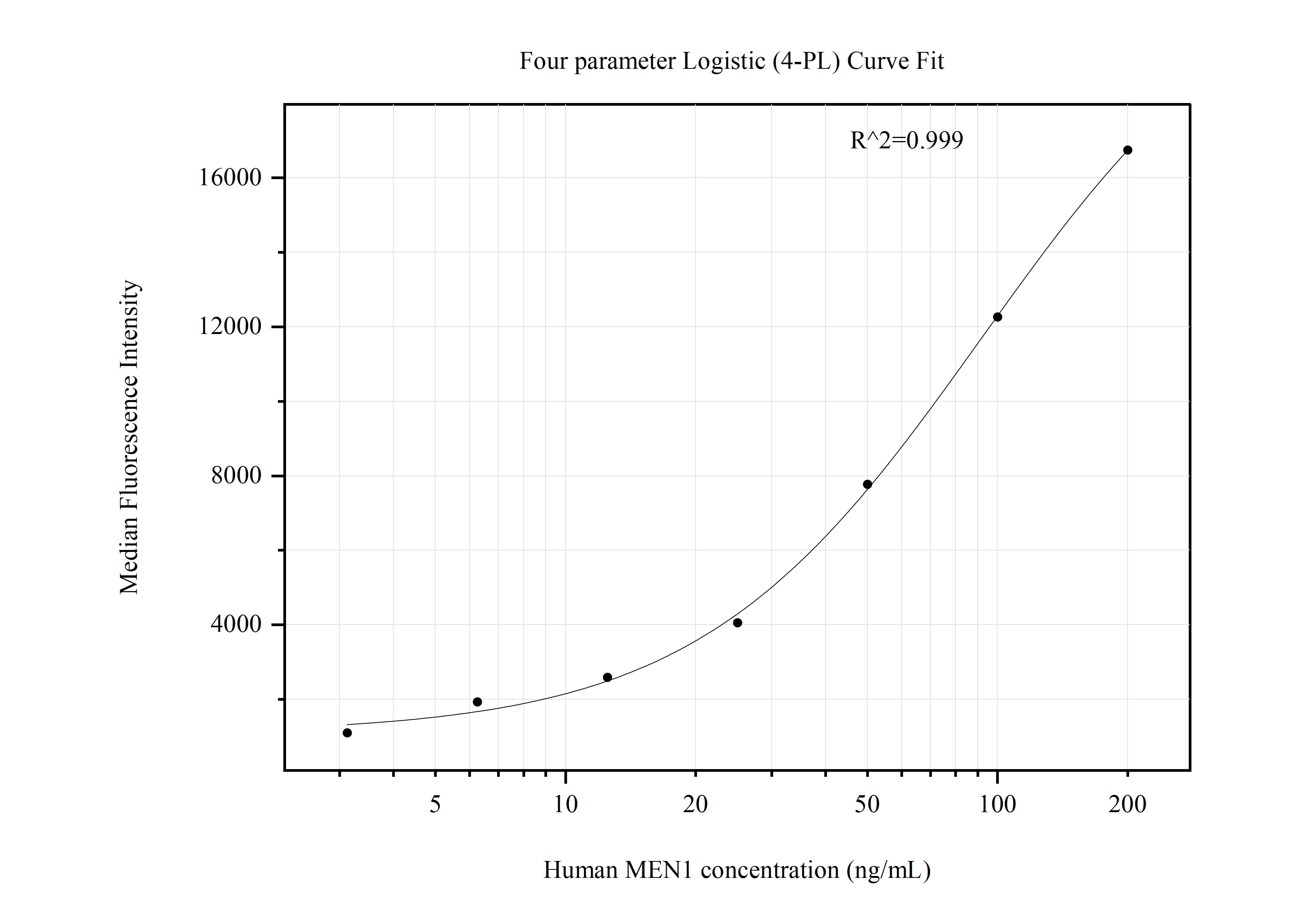MEN1 Monoklonaler Antikörper
MEN1 Monoklonal Antikörper für WB, IHC, Cytometric bead array, Indirect ELISA
Wirt / Isotyp
Maus / IgG1
Getestete Reaktivität
human
Anwendung
WB, IHC, Cytometric bead array, Indirect ELISA
Konjugation
Unkonjugiert
CloneNo.
3A6A11
Kat-Nr. : 68473-1-PBS
Synonyme
Geprüfte Anwendungen
Produktinformation
68473-1-PBS bindet in WB, IHC, Cytometric bead array, Indirect ELISA MEN1 und zeigt Reaktivität mit human
| Getestete Reaktivität | human |
| Wirt / Isotyp | Maus / IgG1 |
| Klonalität | Monoklonal |
| Typ | Antikörper |
| Immunogen | MEN1 fusion protein Ag7566 |
| Vollständiger Name | multiple endocrine neoplasia I |
| Berechnetes Molekulargewicht | 68 kDa |
| Beobachtetes Molekulargewicht | 68-70 kDa |
| GenBank-Zugangsnummer | BC002544 |
| Gene symbol | MEN1 |
| Gene ID (NCBI) | 4221 |
| Konjugation | Unkonjugiert |
| Form | Liquid |
| Reinigungsmethode | Protein-G-Reinigung |
| Lagerungspuffer | PBS only |
| Lagerungsbedingungen | Store at -80°C. 20ul Größen enthalten 0,1% BSA. |
Hintergrundinformationen
MEN1, also named as Menin or MEAI, is a tumor suppressor protein encoded by the MEN1 gene. It is located in nucleus and ubiquitous expression in spleen and lymph node. The calculated molecular weight of MEN1 is 68 kDa. Its inactivation has been implicated in tumors of many endocrine tissues. Germline inactivating mutations of MEN1 gene are the main cause of multiple endocrine neoplasia type 1 (MEN1), a syndrome characterized by tumors in the pituitary gland, the parathyroid glands, and the enteropancreatic neuroendocrine tissues. Recent study shows astroglia menin deficiency leads to depressive-like behaviors in mice.
